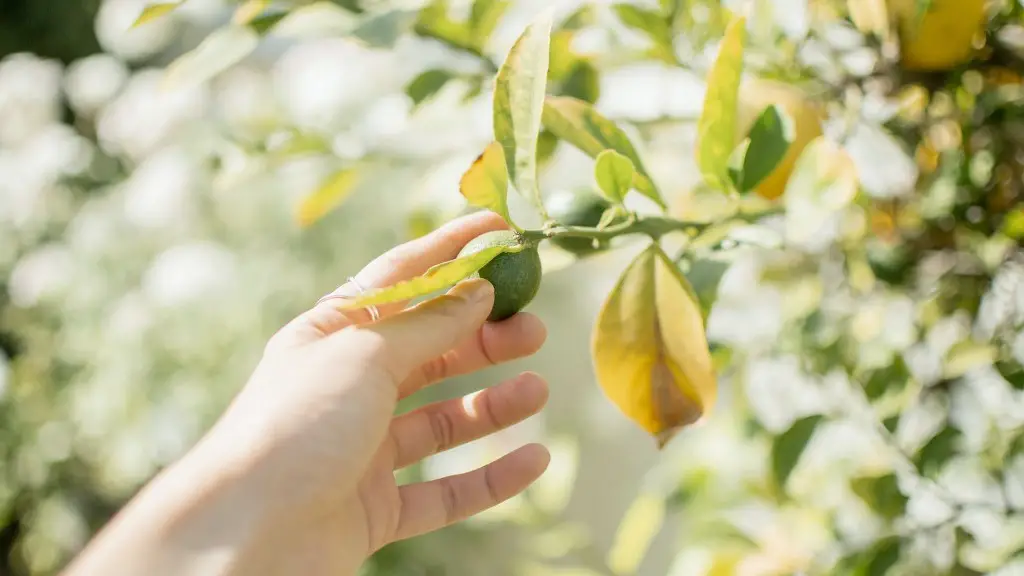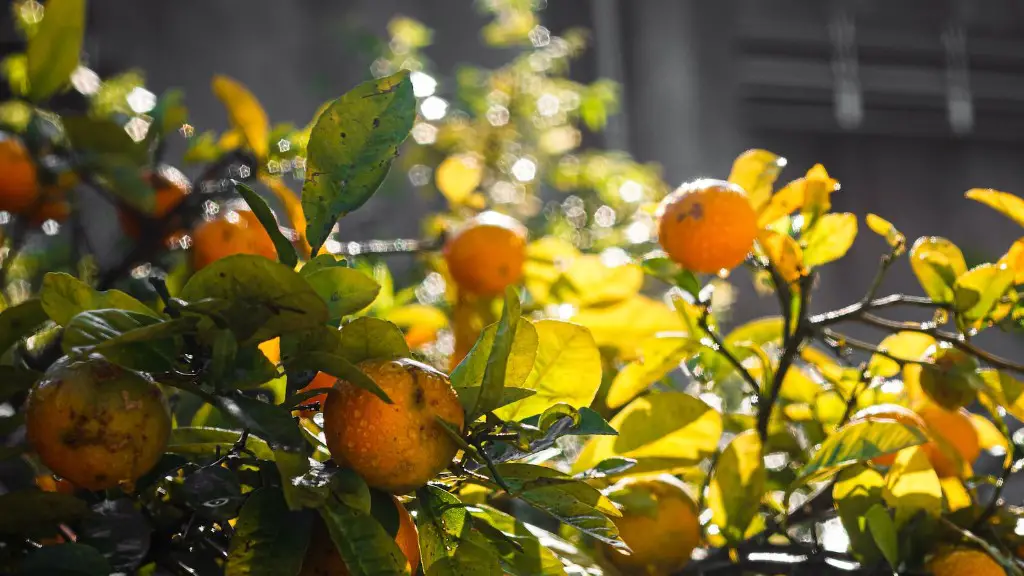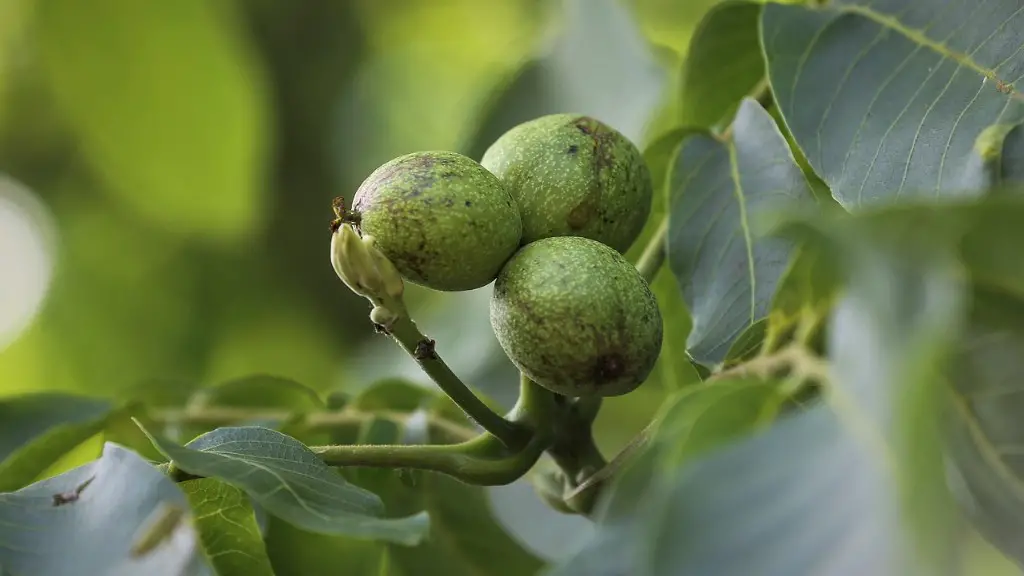Lemon trees are one of the most popular citrus trees planted in home gardens. They are relatively easy to grow and care for and produce an abundance of lemons. But when is the best time to plant a lemon tree? The answer may vary depending on your location.
There is no definitive answer to this question as it depends on a number of factors, such as climate and soil type. However, in general, it is advised to plant lemon trees in late winter or early spring.
What is the best month to plant a lemon tree?
Lemon trees are lovely, fragrant plants that can brighten up any garden. They’re also relatively easy to care for, as long as you give them the right conditions. Plant your lemon tree in late February or early March, after the coldest part of winter is past. Choose a sunny, well-drained location with plenty of room for the tree to grow 8 feet tall and wide. Water regularly, fertilize monthly, and prune in early spring to encourage new growth. With a little TLC, your lemon tree will thrive and produce an abundance of delicious fruit for years to come.
Lemon trees are best planted in the spring to avoid harsh winter or summer temperatures. This also depends on what growing zone you’re located in so check and make sure that the ground isn’t frozen and you are past the risk of frost.
How long does it take for a lemon tree to bear fruit
Lemon trees require full sun and well-drained soil to thrive. When grown outdoors in warm climates, they can reach up to 20 feet in height and take up to six years to bear fruit. Once established, lemon trees are relatively low-maintenance, needing only occasional pruning and fertilization to produce an abundance of tart, juicy lemons.
Fall is the perfect time to plant citrus trees! The milder temperatures help the trees to weather the winter and the hot south or west facing location with good draining soil is perfect for citrus trees.
Do lemon trees grow better in pots or ground?
Lemon trees are a popular choice for many people who want to grow their own fruit. However, there are some challenges that come with growing lemon trees in containers. One issue is that they are more vulnerable to the cold and drought. While a lemon tree in the ground can take mild frost and cold, a lemon tree in a container cannot. A lemon tree in a container has a hardiness zone that is one zone higher than the USDA recommended zone. This means that if you live in an area that gets cold winters, you will need to take extra care of your lemon tree and make sure it is protected from the cold. Another issue with lemon trees in containers is that they are more susceptible to pests and diseases. This is because the roots of the tree are more exposed and unprotected. If you are considering growing a lemon tree in a container, make sure you are prepared to take care of it and give it the extra care it needs.
Citrus trees need a lot of sun to grow well and produce fruit. Look for a spot in your yard or garden that gets at least six hours of direct sunlight each day. If you live in a cooler climate, you may need to grow your lemon tree against a south-facing wall or move the pot indoors during times of frost.
Can I use regular potting soil for my lemon tree?
Citrus trees need well-drained soil in order to thrive, so it is important to select the right potting mix when planting. Commercial potting mixes that contain peat moss, perlite, vermiculite, and compost are typically fine to use, as long as the soil is light enough to allow water to drain well. By making sure your tree has the proper drainage, you can help ensure that it will be healthy and fruitful for many years to come.
Citrus plants need room to grow, so choose a pot that is at least 50cm in diameter. drainage holes are also important to allow excess water to escape and avoid waterlogging.
A trolley is a great way to easily move your pot around to find the perfect spot for it, depending on the season. Citrus plants prefer a sunny position but may need some protection from the hottest sun in summer.
Can lemon trees survive winter
The winter season has been tough on citrus plants. It is important to understand how cold temperatures affect citrus trees. Among the citrus types most easily killed or damaged by freezing weather are citrons, lemons and limes. Temperatures in the high 20s will kill or severely damage these plants.
Most citrus varieties are self-fertile, so only one tree is typically needed for fruit production. On average, fruit bearing begins when the trees are between 3 and 6 years old. However, exact timing will depend on the type of citrus, the cultivar, your climate, the health of the plant and its care, and other factors.
Are lemon trees toxic to dogs?
If you have a lemon tree and your dog likes to chew on the leaves or eat the fruit, be aware that the citric acid can cause stomach upset and, in large quantities, central nervous system depression.
This Meyer lemon tree is approximately 2-3 feet tall and is ideal for growing in containers. Meyer lemons are a cross between a true lemon and a mandarin orange, and are known for their sweetness and lack of seeds. This tree produces an abundance of fragrant, yellow fruits that can be used in a variety of culinary dishes.
Can you leave lemon plant outside in winter
This will help the tree to acclimatize to the changing seasons and will help to prevent it from getting too stressed.
Lemon trees are a popular choice for growing in pots, as they are easily brought indoors over winter in colder climates. They do require some care, however, as they need regular watering and fertilizing, and cannot tolerate temperatures lower than 40°F (5°C). with proper care, a lemon tree in a pot can provide you with fresh, juicy lemons for years to come.
What temperature is too cold for a lemon tree?
If you live in an area with cold winters, it’s important to choose lemon, lime, and citron trees that are early ripening varieties. That way, you can harvest the fruit before cold weather arrives and the trees suffer damage.
This is an all purpose fruit tree spray that can be used on citrus and palm trees. It is safe to use around children and pets and is effective at controlling a variety of pests.
Is Miracle Grow potting mix good for lemon trees
This special blend of sphagnum peat moss, composted forest products, sand and perlite is excellent for growing your cactus, palm, citrus and other succulents. The sphagnum peat moss helps to hold moisture and the composted forest products provide nutrients that are essential for plant growth. The sand and perlite help to aerate the soil and improve drainage. This blend is sure to give your plants the best chance for success.
To Miracle-Gro:
We are looking for a product to use on our trees and shrubs. Your Water Soluble All Purpose Plant Food label says it can be used on all trees and shrubs. Can you please provide more information about this product? What are the benefits of using it on trees and shrubs? Thank you.
Final Words
The best time to plant a lemon tree is in spring.
The best time to plant a lemon tree is in the late fall or early winter. This gives the tree a chance to become established before the hot summer months.


